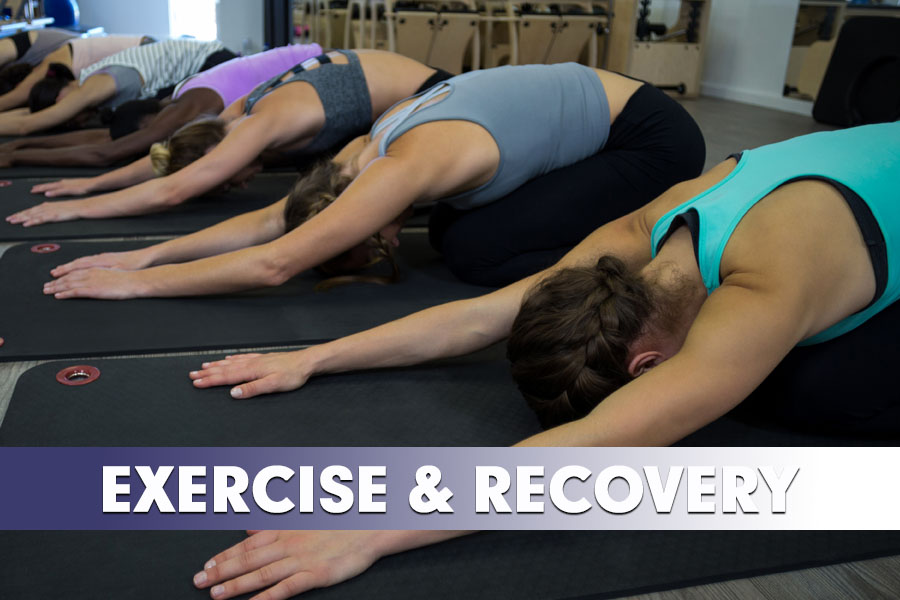Benefits of exercise on physical and mental health have been praised for decades. There is a big connection between exercise and addiction recovery. As the body is adjusting itself to life without alcohol or drugs, it is going through numerous changes.
These changes will be positive in the long term and may seem unbearable during the recovery period.
The increased feeling of stress, reduced energy, lack of sleep, and depression may follow individuals into recovery sometimes even after the detoxification period. This is where exercise comes into place and becomes beneficial. Individuals in recovery who engage in regular physical activity can benefit from a reduction of stress, better sleep, increased energy, improved mood, and much more.
Addiction changes the body’s chemistry. Once substances are removed from the body, one may be left feeling stressed. However, physical activity can help shift those negative emotions away and bring some positive ones.
Exercise can be very effective during recovery. Whether it is in a form of yoga, team sports, cardio, or aerobics, it increases the chances continued recovery and a healthy lifestyle.
Benefits of Exercise During Addiction Recovery
Stress Reduction – Stress can be a problem in addiction recovery and can lead to a fall back into addiction if it was not properly managed. One of the ways to reduce and control stress is through exercise. Physical activity releases good endorphins in the brain and improves circulation, which helps with reducing stress. Developing a healthy routine can be utilized when stress related to life, work, or family occurs.
Physical activity helps people focus on body movements instead of stressors. While exercising, the brain produces endorphins that reduce pain.
Better Sleep – It is not uncommon to have sleeping problems during recovery. Many people use alcohol or drugs believing it would help them sleep better. However, regular exercise can improve both quality and quantity of sleep.
Poor quality of sleep can cause fatigue, a health symptom that may lead to a fall-back during recovery. Exercise can improve quality of sleep by stimulating recuperative processes that strengthen health during sleep.
Improved Mood – Addiction recovery and mood changes can be associated together and can help the body adjust to its new circumstances by teaching it how to naturally produce the feel-good chemicals that are normally sought through drugs. Exercise helps with releasing endorphins in the brain, providing feeling of happiness and well being. Per the Mayo Clinic, 30 minutes of exercise a day can bring a positive change in one’s mood.
Increased Energy – When an individual exercises they lose a lot of energy but will receive lots of energy in exchange for their efforts. If recovery has left one feeling tired at times, regular exercise can help with getting more energy. Including an exercise routine early in the recovery process can help recovered individuals as they begin to manage the demands of day to day life.
Stronger Immune System – A report by the Office of Disease Prevention and Health claims that regular exercise helps protect the body from certain serious conditions such as cancer, stroke, heart disease, depression, diabetes, and much more.
Prevent Fall Back – The greatest motivation is to get regular exercise in addition to recovery is that regular movement helps prevent a return to alcohol or drug use. Studies suggest that regular exercise can increase abstinence rate for alcohol or drug use by 95 per cent. Studies have also found that exercise helps with managing stress, depression, and anxiety, which all contribute to alcohol and drug addiction.
Popular Exercise Routines
Each day people engage in activities such as running, walking, weightlifting, rock climbing, boxing, biking, martial arts, and many other forms of exercise. Most of them are very beneficial for individuals that are recovering from drug or alcohol addiction. People in recovery should combine exercise with aftercare services such as counselling.
Hiking – Hiking through nature can improve mental and physical health. This activity can help individuals in recovery improve their self-esteem, emotional growth, and feelings of accomplishments.
Swimming – Swimming can be a relaxing activity as it eases the tensions in the muscles and joints. The cool and gentle water can reduce soreness and aches associated with withdrawal symptoms that occur during addiction recovery.
Team Sports – Team sports such as basketball, tennis, soccer, volleyball, and much more have many physical and mental health benefits, which also helps individuals build healthy relationships with others.
Yoga – Yoga has many health benefits. Yoga has been found to reduce stress, decrease pain, and improve self-awareness. Research shown that yoga helps reduce cravings that people in recovery have from addiction.
CrossFit – CrossFit is a high-intensity fitness program that is a combination of various exercises, team communication, and a healthy nutrition program. People in recovery have used CrossFit to improve their confidence, self-respect, and happiness.
Dangers of Excessive Exercise
While exercise is effective when it comes to addiction recovery. It is important not to engage in too much physical activity. Excessive exercise may result in injuries or exercise addition, which is a disorder considered as an unhealthy obsession with physical activity.
Signs of Exercise Addiction:
Exercise through injury
Developing an obsession with physical activity
Exercising in secret
Engaging in the activity even when wanting to stop
A study by the Mayo Clinic found that excessive exercise could harm the heart. Excessive exercise is also associated with numerous eating disorders, including anorexia, bulimia, and binge-eating disorder. However, normal amount of exercise is not harmful to one’s health and remains very effective in recovering from addiction and it does reduce the risk of chronic disease and improves overall health.
References:
Depression and anxiety: Exercise eases symptoms

